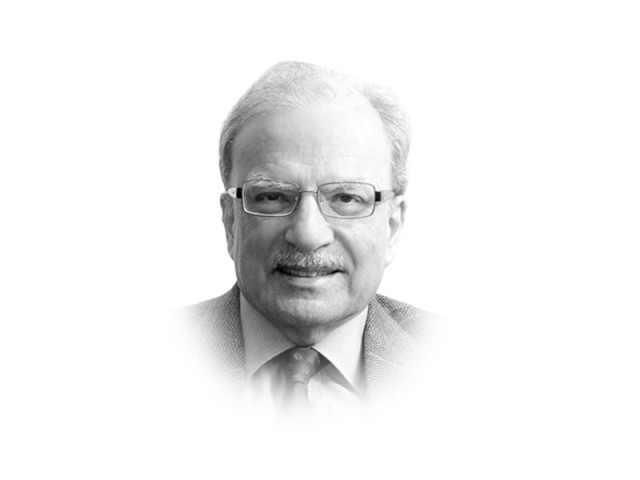Risks and rewards: the state’s conundrum
The risk-opportunity nexus has to be borne in mind when states plan for the future.

The writer is a former caretaker finance minister and served as vice-president at the World Bank
At the time of independence, Pakistan had few opportunities but was faced with many more risks — certainly more than its sister state India. It had to deal with not one change but two: the departure of the British and separation from the Hindu majority in what was once British India. There were some known and unknown risks. Will it be able to coalesce a fairly diverse population on the basis of what historians now call the ‘idea of Pakistan’? According to this, religion will be able to make a nation out of the people, who had very little else in common. This was behind Muhammad Ali Jinnah’s Two-Nation Theory. But how would religion be used for the purpose of nation-building? The Quaid was asked this question a number of times before Pakistan became formally independent but avoided the question. As Steve Inskeep recalls in his history of Karachi titled Instant City, at one point, Pakistan’s founding father became irritated with this line of questioning. He “began to answer this question more clearly as independence neared, when he said that citizens would have an essentially secular relationship with the state”, writes Inskeep.
There were several other risks Pakistan faced at the time of its birth. Will the country be able to find the resources from within and from the outside to invest in development? Will it have the strength to keep some predators away from its borders? Will the country be able to build from scratch a new structure of government? Unlike India, Pakistan did not have the apparatus of governance in place when the British departed. The management of these risks and opportunities occupied the first generation of Pakistani leaders.
Today, almost 70 years later, the country still faces the risks it had to deal with at the time of its birth. To those some more have been added. But new opportunities have also appeared, more than those seen at the time of independence. Balancing the two so that the country does not get overwhelmed by the first but benefits from the second is the main challenge the new set of leaders has to settle. Preparing for risks is a sufficiently important area for concern and investigation for modern-day economists. For instance, the World Bank has devoted its 2014 “World Development Report” to its study. The report titled “Risk and Opportunity: Managing Risk for Development” provides a useful analytical framework for analysing the situation in Pakistan and how it should be dealt with.
The Greek philosopher Heraclitus wrote centuries ago that the only thing constant is change and with change comes opportunity. “It is only natural, therefore, that the analysis of choice under uncertainty and scarce resources has been at the heart of economics and public policy for centuries” writes the World Bank in the above-cited report. The latest thinking is based on the work of John von Neumann and Oskar Morgenstern, which developed the notion that individuals optimise the expected “utility” (or subjective perception of welfare) of possible outcomes. According to this line of thinking, individuals make rational choices based on their preferences for risk and their knowledge of potential outcomes and respective probabilities.
This simple notion has been challenged on two grounds. According to one put forward by scholars such as Daniel Kahneman, whose work won him the Nobel Prize, innate tendencies and biases limit exercise of rationality. An example of this is the approach adopted by the Taliban who view education, particularly of girls, as irreligious even though they would know that returns from education would be high. The second challenge to the expected utility approach is that individuals do not make decisions in isolation but in groups, mainly because the potential outcomes can be greatly affected by how people act in coordination with others. Again, an example of this comes from Pakistan’s northern areas where a lot of decisions taken by individuals are in the context of a code of behaviour called the Pashtunwali.
The risk-opportunity nexus has to be borne in mind when states plan for the future. This is perhaps, more true for today’s Pakistan than for most other developing nations. When historians write Pakistan’s history sometime in the future, say in 2047 when the country celebrates its hundredth year of independence, they will identify a number of turning points: 1947, the year of independence; 1965, when Pakistan went to war with India; 1979, when the Soviet Union invaded Afghanistan; 2001 when a group of Muslim terrorists attacked the United States; and, perhaps, 2013-14 when Pakistan began to define a new future for itself under a new political dispensation. In the article next week, I will use the ‘risk-opportunity’ analytical framework to deal with the important question of using education as the lever of moving the country forward.
Published in The Express Tribune, January 20th, 2014.
Like Opinion & Editorial on Facebook, follow @ETOpEd on Twitter to receive all updates on all our daily pieces.














COMMENTS
Comments are moderated and generally will be posted if they are on-topic and not abusive.
For more information, please see our Comments FAQ